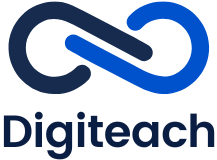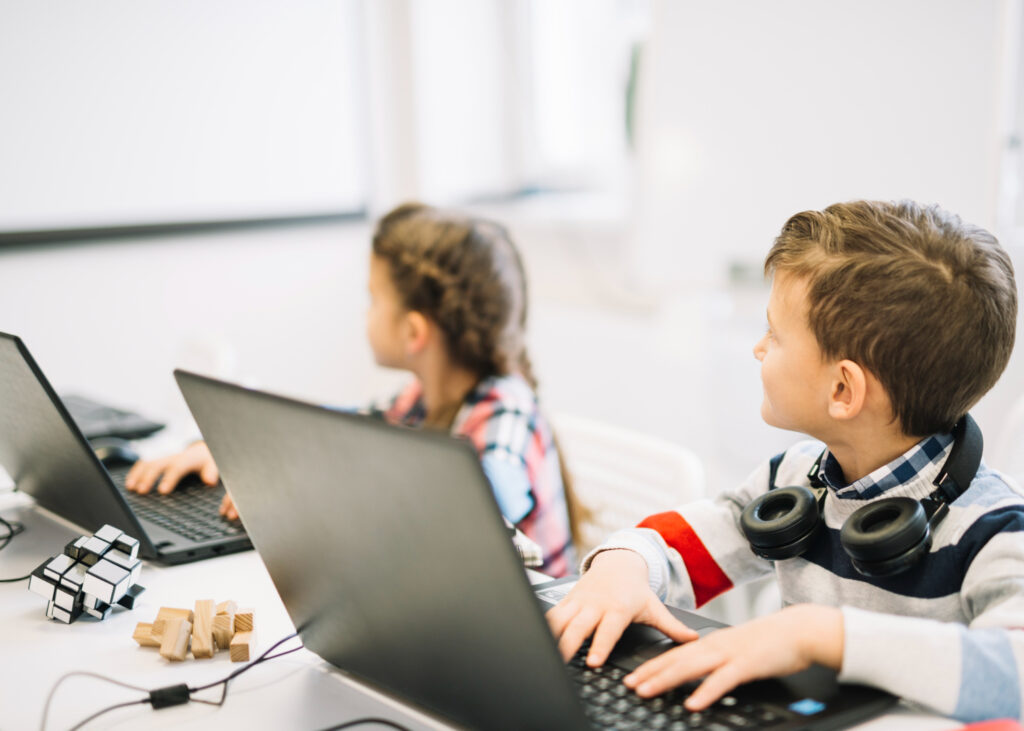Children need to learn skills that will prepare them for the future as we live in a digital age where technology is ingrained in every part of our lives. One such talent is programming. Coding, once thought of as a specialized profession for computer scientists and engineers, is now recognized as an essential literacy ability for kids. Children learn computer communication skills through coding, which also encourages creativity, critical thinking, and problem-solving skills. In this blog article, we’ll examine the advantages of teaching kids to code and talk about the numerous tools and resources that are available to help kids get started in the fascinating world of coding.
Why Teach Kids to Code?
- Enhances Problem-Solving Skills: Coding promotes logical thinking and helps children break down complex problems into smaller, manageable parts. By learning to code, kids develop a structured approach to problem-solving, enabling them to tackle challenges efficiently.
- Fuels Creativity: Coding empowers children to bring their imaginative ideas to life. They can design and build interactive stories, animations, games, and websites, allowing their creativity to flourish. Coding opens up a world of endless possibilities for kids to express themselves through technology.
- Future-Proofing Careers: In an increasingly digital world, coding skills are in high demand across various industries. By introducing kids to coding at an early age, we prepare them for a future where technology literacy is essential. Whether they choose to pursue a career in technology or not, coding skills will provide them with a competitive edge.
How to Get Started with Coding for Kids
- Visual Programming Languages: Scratch, Blockly, and ScratchJr are excellent platforms that utilize colorful blocks of code, making it easier for young children to understand and create programs. These platforms offer a gentle introduction to coding concepts while engaging kids in a fun and interactive manner.
- Coding with Robotics: Robotics kits, such as LEGO Mindstorms or Dash and Dot, offer a hands-on approach to coding. Kids can program these robots to perform various tasks, encouraging them to think critically and experiment with different algorithms.
- Online Coding Courses: Several online platforms provide coding courses specifically designed for kids. Code.org, Khan Academy, and Tynker offer a range of interactive coding lessons and projects suitable for different age groups. These platforms often incorporate gamification elements to make learning to code enjoyable and engaging.
Building a Coding Environment
- Encourage Collaboration: Coding doesn’t have to be a solitary endeavor. Encourage kids to work together on coding projects, fostering collaboration, and teamwork. Peer-to-peer learning can enhance problem-solving abilities and provide a sense of community.
- Provide Accessible Tools: Ensure that children have access to computers or tablets with the necessary software and applications installed. If resources are limited, consider exploring coding apps available for smartphones, enabling kids to code on the go.
- Celebrate Achievements: Recognize and celebrate children’s coding accomplishments. Showcase their projects to family and friends, organize coding competitions or participate in coding events. Positive reinforcement fuels motivation and helps kids develop a growth mindset.
The Benefits of Coding for Kids
- Computational Thinking: Coding encourages computational thinking, which is the ability to break down complex problems into smaller, manageable steps. This approach helps children analyze problems, identify patterns, and develop logical solutions. Computational thinking is a valuable skill applicable in various areas of life, not just in coding.
- Improved Math and Science Skills: Coding involves mathematical concepts such as sequencing, patterns, and logic. By engaging with coding, children can develop a deeper understanding of math and science principles, as they apply these concepts in a practical and tangible way.
- Enhancing Resilience and Perseverance: Coding often involves trial and error, and children learn to embrace mistakes as part of the learning process. Debugging code and finding solutions to programming challenges require perseverance and resilience. Through coding, kids develop a growth mindset, understanding that setbacks are opportunities for learning and improvement.
- Developing Algorithmic Thinking: Coding teaches children how to think algorithmically, which means breaking down a task into a series of step-by-step instructions. This type of thinking is valuable for problem-solving in various disciplines and lays the foundation for understanding more complex computer science concepts in the future.
Coding Beyond the Screen
- Robotics and Internet of Things (IoT): Coding can extend beyond the screen with the integration of robotics and IoT. Kids can learn to program robots to perform specific actions or control devices connected to the internet, such as lights or sensors. These hands-on experiences offer a tangible way to apply coding skills and deepen their understanding of how technology interacts with the physical world.
- Creative Expression: Coding provides a platform for artistic expression. Children can create digital art, design their own websites, or compose music using coding languages. These avenues combine technology with creativity, encouraging kids to explore their interests and develop unique projects that reflect their personality.
- Problem-Solving in Real-World Contexts: Encourage kids to apply their coding skills to real-world challenges. They can develop applications or games that address social or environmental issues, fostering a sense of empathy and purpose. By connecting coding to real-life scenarios, children understand the practical applications of their skills and the positive impact they can have on the world.
Coding in Education
- Integration into School Curriculum: Many educational institutions are recognizing the importance of coding and incorporating it into their curriculum. Coding classes or clubs are being introduced to expose children to computational thinking and problem-solving from an early age. Integrating coding into core subjects like math and science enhances learning outcomes and equips students with essential skills for the future.
- Multidisciplinary Learning: Coding bridges different disciplines, encouraging interdisciplinary learning. Children can combine coding with subjects like art, music, and language, creating interactive projects that blend creativity and technology. This multidisciplinary approach not only strengthens their coding skills but also fosters a holistic understanding of various subjects.
- Fostering Digital Citizenship: Coding education goes beyond programming skills; it emphasizes responsible and ethical use of technology. Children learn about internet safety, privacy, and the ethical considerations surrounding technology. They become aware of their role as responsible digital citizens, understanding the impact of their actions in the digital world.
Parental Involvement and Support
- Encouraging Curiosity: Parents can nurture their child’s interest in coding by encouraging curiosity and exploration. Providing them with age-appropriate coding resources and tools helps foster their passion for learning and technology.
- Learning Together: Parents can engage in coding activities alongside their children. Learning together not only strengthens the parent-child bond but also allows for shared experiences and mutual support. Parents can also learn from their children, as kids often have a fresh perspective and innovative ideas.
- Creating a Coding-Friendly Environment: Setting up a dedicated workspace with a computer or tablet, coding books, and relevant materials creates a conducive environment for coding. Parents can also seek out coding workshops, camps, or online communities where their children can interact with like-minded peers and mentors.
Overcoming Challenges
- Gender Inclusivity: Historically, coding has been male-dominated, but efforts are being made to encourage more girls to pursue coding. Initiatives such as Girls Who Code and coding workshops specifically for girls help address the gender gap in the tech industry. Parents and educators can promote coding as a gender-neutral activity and provide equal opportunities for boys and girls to engage with coding.
- Accessibility and Inclusion: It’s crucial to ensure that coding resources and platforms are accessible to all children, including those with disabilities or limited access to technology. Making coding inclusive involves providing support, accommodations, and alternative tools to facilitate the learning process for children with diverse needs.
The Long-Term Benefits of Coding for Kids
- Enhanced Computational Skills: Coding develops computational thinking, a foundational skill that extends beyond programming. As children learn to break down complex problems into smaller steps, they become proficient at analyzing and solving problems systematically. These skills translate into other areas of life, such as organization, planning, and decision-making.
- Improved Academic Performance: Coding can have a positive impact on academic performance. Studies have shown that students who engage in coding often exhibit higher levels of concentration, critical thinking, and problem-solving skills. These cognitive abilities transfer to other subjects, leading to improved academic performance across the board.
- Career Opportunities: The demand for professionals with coding skills continues to grow across various industries. By introducing children to coding at a young age, we open doors to a wide range of career opportunities in fields such as software development, data analysis, artificial intelligence, and cybersecurity. Equipping children with coding skills gives them a competitive advantage in the job market of the future.
- Entrepreneurial Mindset: Coding empowers children to become creators and innovators. It fosters an entrepreneurial mindset by encouraging them to identify problems, devise solutions, and bring their ideas to life through technology. Coding cultivates an attitude of resourcefulness, resilience, and a willingness to take risks—an invaluable foundation for future entrepreneurs.
- Digital Literacy: In the digital age, digital literacy is essential for navigating the world effectively. Coding equips children with the ability to understand, create, and interact with technology. They become discerning users of technology, capable of leveraging its potential while being mindful of its impact on society.
Continuing the Coding Journey
- Expanding Coding Languages: Once children grasp the fundamentals of coding, they can explore different programming languages and platforms. Python, JavaScript, and HTML/CSS are popular languages that offer more advanced capabilities and allow children to create sophisticated projects. Diverse coding languages expose children to various programming paradigms and expand their problem-solving toolkit.
- Personal Projects and Challenges: Encourage children to work on personal coding projects and challenges. Setting goals and completing self-directed projects provides a sense of accomplishment and motivates further learning. They can showcase their projects on coding forums or participate in coding competitions to gain recognition and feedback from a wider audience.
- Mentoring and Community Involvement: Engaging with coding communities and seeking mentorship opportunities can accelerate children’s learning and provide valuable guidance. Local coding clubs, online forums, and coding workshops often facilitate connections with experienced coders who can offer mentorship and share their expertise.
Coding for kids is a transformative journey that goes beyond the acquisition of technical skills. It instills problem-solving abilities, critical thinking, and creativity, preparing children for a future where technology is intertwined with every aspect of society. By nurturing their passion for coding, providing support, and exposing them to diverse opportunities, we empower children to become active contributors, leaders, and innovators in the digital world. Let’s embrace coding as an essential educational tool and continue to inspire and guide our children on their coding journey, unlocking their potential and shaping a future where their skills and creativity are boundless.
For Global E learning coding course VISIT NOW






